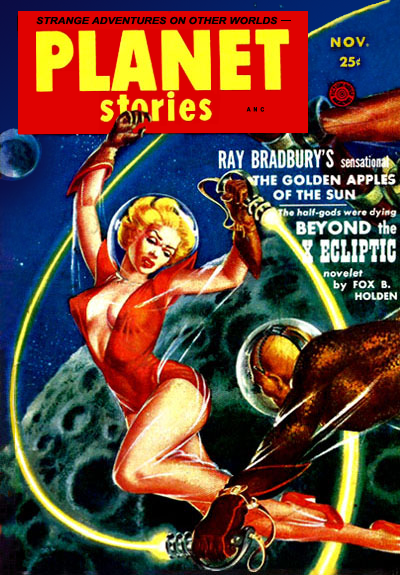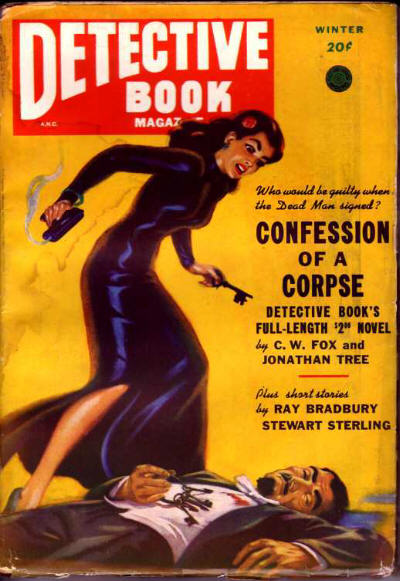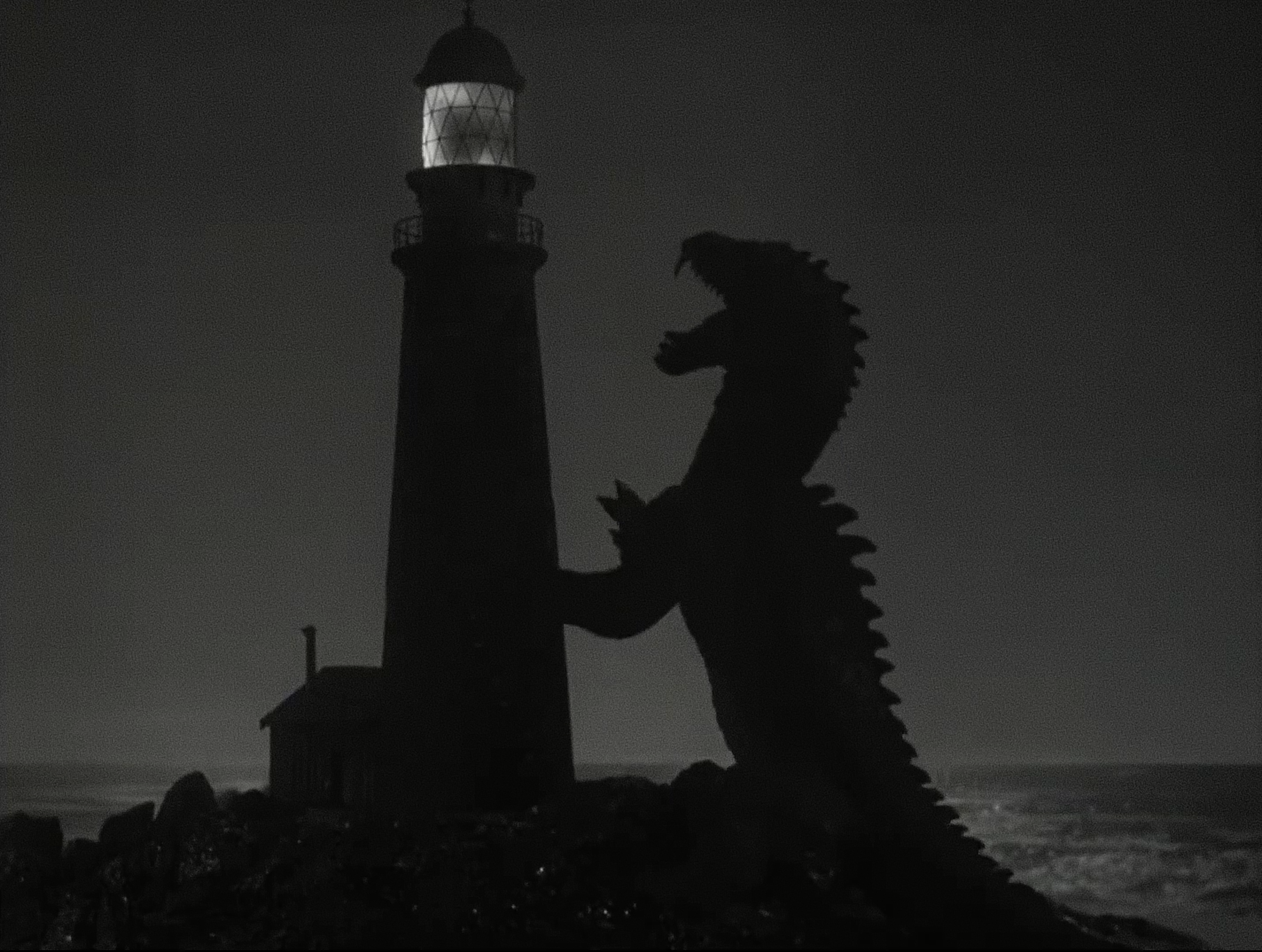|
The Golden Apples Of The Sun
''The Golden Apples of the Sun'' is an anthology of 22 Short story, short stories by American writer Ray Bradbury. It was published by Doubleday & Company in 1953. The book's title is also the title of the final story in the collection. The words "the golden apples of the sun" are from the last line of the final stanza of W. B. Yeats' poem "The Song of Wandering Aengus" (1899): Bradbury prefaces his book with the last three lines of this poem. When asked what attracted him to the line "the golden apples of the sun", he said, "[My wife] Maggie introduced me to Romantic poetry when we were dating, and I loved it. I love that line in the poem, and it was a metaphor for my story, about taking a cup full of fire from the sun." ''The Golden Apples of the Sun'' was Bradbury's third published collection of short stories. The first, ''Dark Carnival (short story collection), Dark Carnival'', was published by Arkham House in 1947; the second, ''The Illustrated Man'', was published by ... [...More Info...] [...Related Items...] OR: [Wikipedia] [Google] [Baidu] |
Ray Bradbury
Ray Douglas Bradbury (; August 22, 1920June 5, 2012) was an American author and screenwriter. One of the most celebrated 20th-century American writers, he worked in a variety of modes, including fantasy, science fiction, horror, mystery, and realistic fiction. Bradbury wrote many works and is widely known by the general public for his novel ''Fahrenheit 451'' (1953) and his short-story collections ''The Martian Chronicles'' (1950) and ''The Illustrated Man'' (1951). Most of his best known work is speculative fiction, but he also worked in other genres, such as the coming of age novel ''Dandelion Wine'' (1957) and the fictionalized memoir ''Green Shadows, White Whale'' (1992). He also wrote and consulted on screenplays and television scripts, including ''Moby Dick'' and ''It Came from Outer Space''. Many of his works were adapted into television and film productions as well as comic books. ''The New York Times'' called Bradbury "the writer most responsible for bringing modern ... [...More Info...] [...Related Items...] OR: [Wikipedia] [Google] [Baidu] |
Classic Stories 1
''Classic Stories 1: From The Golden Apples of the Sun and R is for Rocket'' is a semi-omnibus edition of two short story collections by Ray Bradbury: ''The Golden Apples of the Sun'' (1953) and '' R is for Rocket'' (1962). The first 18 stories (17 prior to the third-printing's addition of the story "The Golden Apples of the Sun") are assimilated from the original Doubleday edition of ''The Golden Apples of the Sun''. The stories appear in the original sequence, but with three omissions: "The Pedestrian" (1951), " Invisible Boy" (1945), and " Hail and Farewell" (1953). The final 14 stories in the collection are reproduced from ''R is for Rocket''. Omitted are " The Gift" (1952) and two stories already present in ''The Golden Apples of the Sun''. When Avon Books reprinted the book in 1997, they retitled it ''The Golden Apples of the Sun and Other Stories''. Harper Perennial titled their 2005 edition as ''A Sound of Thunder and Other Stories''. Contents # "The Fog Horn" (1952) # ... [...More Info...] [...Related Items...] OR: [Wikipedia] [Google] [Baidu] |
I See You Never
"I See You Never" is a short story by author Ray Bradbury. The story was originally published on November 8, 1947, in ''The New Yorker''. As opposed to most of Bradbury's work, the story is not science fiction or fantasy but rather a vignette about a Mexican immigrant named Mr. Ramirez who is forced to leave the United States after he overstays his visa. Escorted by two police officers, he arrives at his landlady's door to say goodbye. Bradbury describes the pleasures Ramirez had taken in his life in Los Angeles and his sorrows of having to leave. It is included in the collection ''The Golden Apples of the Sun ''The Golden Apples of the Sun'' is an anthology of 22 short stories by American writer Ray Bradbury. It was published by Doubleday & Company in 1953. The book's title is also the title of the final story in the collection. The words "the go ...'' (1953). References External linksThe New Yorker archives* Short stories by Ray Bradbury 1947 short stories Works or ... [...More Info...] [...Related Items...] OR: [Wikipedia] [Google] [Baidu] |
The Golden Kite, The Silver Wind
"The Golden Kite, The Silver Wind" (1953) is a short story by Ray Bradbury, one of his collection ''The Golden Apples of the Sun''. The story was published during the Cold War, and serves as an allegory to the nuclear arms race between the United States and the Soviet Union The Soviet Union,. officially the Union of Soviet Socialist Republics. (USSR),. was a List of former transcontinental countries#Since 1700, transcontinental country that spanned much of Eurasia from 1922 to 1991. A flagship communist state, .... Plot summary The story, set in China, begins in a small pastoral town or village, apparently in a time or place where trade and agriculture are still the norm. There is little in the way of modern technology; no electricity, automobile or advanced irrigation. Superstition is also rampant. The town is described as being in a desert area, and within the vicinity of another, called Kwan-Si. The inhabitants of the town the story is set in are prone to describe the ... [...More Info...] [...Related Items...] OR: [Wikipedia] [Google] [Baidu] |
The Murderer
"The Murderer" (1953) is a short story by Ray Bradbury, published in his collection ''The Golden Apples of the Sun''. Plot summary The scene is set in an unspecified future, in an apparently sterile and clinical building. There is music coming from every direction; each person, it seems, is listening to music, talking on a phone, using an intercom, or communicating constantly in some other way. Most people seem to be engaged in several of these activities at the same time. A psychiatrist exits the noisy environment to confront a patient confined to a small safe-room. The psychiatrist notes that its patient has ripped the radio out of the wall to silence it. The room seems unnaturally quiet to the psychiatrist, yet the patient seems perfectly at ease, even happy. The patient, Albert Brock, calls himself "The Murderer", and demonstrates his murderous ability by destroying the psychiatrist's wrist radio. Questioning reveals that the man had one day been driven mad by the constant ... [...More Info...] [...Related Items...] OR: [Wikipedia] [Google] [Baidu] |
The Flying Machine (short Story)
The Flying Machine is a short story written by Ray Bradbury in 1953. Bradbury also adapted the tale into a short play that same year. Plot China, 400 AD. The Emperor Yuan notices a man who has created a contraption for flying. Emperor Yuan is not at all happy when he asks the inventor his purpose in creating such a device and the inventor replies that his motivation was merely the desire for innovation. Thus Yuan orders that the inventor shall be executed because, while his flying machine may be a beautiful creation, the emperor sees the devastating potential for those who "have an evil face and an evil heart" and will seek to use it for purposes other than the enjoyment of flight, namely flying over the Great Wall of China The Great Wall of China (, literally "ten thousand ''li'' wall") is a series of fortifications that were built across the historical northern borders of ancient Chinese states and Imperial China as protection against various nomadic grou ... and ... [...More Info...] [...Related Items...] OR: [Wikipedia] [Google] [Baidu] |
The Fruit At The Bottom Of The Bowl
"The Fruit at the Bottom of the Bowl" is a short story by Ray Bradbury. It was first published in ''Detective Book Magazine'' in November 1948 (cover date: Winter) as "Touch and Go". The story was re-titled and published as "The Fruit at the Bottom of the Bowl" in ''EQMM'' in January 1953. (Cover image: ) Plot summary Mr. Acton begins the story standing over the body of Mr. Huxley, whom he has just killed. While attempting to cover up his tracks, he has flashbacks of his encounters with Mr. Huxley, with whom he is having an altercation over a woman. These flashbacks reveal to the murderer that there are more and more of his fingerprints all over the man's house, because he thought that he had touched so many different objects. His frenzy to remove all of the evidence distracts him from his actual objective, to get away with the crime. He is eventually caught, after polishing the entire house, while polishing and re-polishing the glass fruit at the bottom of a bowl. References * ... [...More Info...] [...Related Items...] OR: [Wikipedia] [Google] [Baidu] |
The Wilderness (short Story)
"The Wilderness" is a science fiction short story by Ray Bradbury first published in the November 1952 issue of '' The Magazine of Fantasy and Science Fiction'', and included in Bradbury's 1953 collection ''The Golden Apples of the Sun''. The year is 2003, and Janice and Leonora are spending their last days on Earth before leaving for Mars to join Janice's husband Will. While having mixed feelings at first, Janice slowly reveals throughout the story that she is more and more willing to join her husband on Mars while still lamenting about leaving behind all that is on Earth. Janice and Leonora also lament on the second-hand role played by women in exploration and similar situations (i.e. conquest of Western America). Reception In ''The Magazine of Fantasy & Science Fiction'' (1953), Anthony Boucher and J. Francis McComas described the story as one Bradbury's best works, a "heartwarming picture of the girls we can never leave behind us, whatever far boundaries we reach"."Recommended ... [...More Info...] [...Related Items...] OR: [Wikipedia] [Google] [Baidu] |
The April Witch
"The April Witch" is a 1952 fantasy short story by American writer Ray Bradbury. Plot summary Cecy Elliott is a 17-year-old girl born into a magical family. She has the ability to assimilate with other living plants or animals. Purely benevolent and innocent in nature, Cecy tells her parents that she wishes to feel love, despite their warning that she will lose her magical abilities if she marries a human. She does not heed their warning and merges her essence with a young woman named Ann. She forces Ann to attend a dance with Tom, a 22-year-old man who has been interested in her for a while. However, Ann has no interest in Tom. Tom is aware of Ann's inconsistent behaviour during the dance. The story ends with Cecy becoming attracted to Tom and trying to arrange a meeting with Tom and her human form through Ann. Reception Boucher and McComas described the story as one of Bradbury's "reassuringly lovely flights of fancy"."Recommended Reading", ''F&SF'', June 1953, p.70 Publica ... [...More Info...] [...Related Items...] OR: [Wikipedia] [Google] [Baidu] |
The Fog Horn
"The Fog Horn" is a 1951 science fiction short story by American writer Ray Bradbury, the first in his collection ''The Golden Apples of the Sun''. The story was the basis for the 1953 film ''The Beast from 20,000 Fathoms''. Plot summary The plot follows Johnny, the protagonist and narrator, and his boss, McDunn, who are putting in a night's work at a remote lighthouse in late November. The lighthouse's resonating fog horn attracts a sea monster. This is in fact the third time the monster has visited the lighthouse: he has been attracted by the same fog horn on the same night for the last two years. McDunn attributes the monster's actions to feelings of unrequited love for the lighthouse, whose fog horn sounds exactly like the wailings of the sea monster himself. The fog horn tricks the monster into thinking he has found another of his kind, one who acts as though the monster did not even exist. McDunn and Johnny turn off the fog horn, and in a rage, the monster destroys the light ... [...More Info...] [...Related Items...] OR: [Wikipedia] [Google] [Baidu] |
Hail And Farewell (short Story)
Hail and Farewell (a translation of ''ave atque vale'', last words of the poem Catullus 101) is a traditional military event whereby those coming to and departing from an organization are celebrated. This may coincide with a change in command, be scheduled on an annual basis, or be prompted by any momentous organizational change. It is a time to honor those who have departed the unit and thank them for their service. At the same time it is a welcome to those who are joining and introduces them to the special history and traditions of their new organization. This celebration builds organizational camaraderie and esprit de corps. It supports a sense of continuity through change. United States For the United States Army, a Hail and Farewell is most often celebrated at a formal dining in when there is a change in command. This provides the unit with a formal setting in which to welcome the new commander and honor the old commander. Some units may elect a less formal Dining Out in whic ... [...More Info...] [...Related Items...] OR: [Wikipedia] [Google] [Baidu] |
Invisible Boy (Ray Bradbury)
Invisible Boy or ''variant'', may refer to: * Invisible person, a SF concept * ''The Invisible Boy'' (aka ''S.O.S Spaceship''), a 1957 U.S. science fiction film * ''The Invisible Boy'' (2014 film), an Italian superhero film * ''Boy'' (The Invisibles), alter-ego of Lucille Butler, a DC Comics character created by Grant Morrison, see List of The Invisibles characters * ''Danny Dunn, Invisible Boy'' (aka ''Invisible Boy'') a 1974 juvenile science fiction adventure novel by Raymond Abrashkin and Jay Williams * ''Invisible Boy'' (short story), a 1945 short story by Ray Bradbury, collected in the 1953 Bradbury anthology ''The Golden Apples of the Sun'' See also * * * * The Invisible Man (other) * Invisible Girl (other) Invisible Girl is the original name of Invisible Woman, a fictional character that appears in comic books published by Marvel Comics. Invisible Girl or The Invisible Girls or ''variant'', may refer to: * Invisible person, a science fiction concep ... ... [...More Info...] [...Related Items...] OR: [Wikipedia] [Google] [Baidu] |



